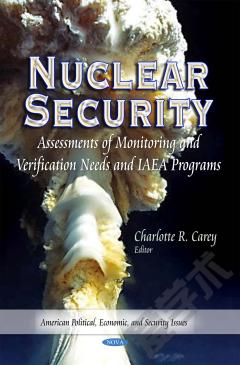Nuclear Weapons: Global Programmes, Challenges and Security Implications
Chapter One offers an overview of the international obligations and cooperation mechanisms concerning nuclear preparedness and response, with a special focus on those established by the European Union. The authors proceed to a critical review of multilateral treaties that have been established and they emphasize international obligations and cooperation mechanisms at the universal level. The aim of Chapter Two is to evaluate what is the potential nuclear explosive yield of a Hypothetical Nuclear Explosive Device (HNED) of the implosion type, based on reactor-grade plutonium and low technology, i.e. a technology comparable to that of the earliest plutonium weapons. Chapter Three discusses how South Korea is standing at a strategic crossroads of “keeping a policy of denuclearization” and “turning to nuclear armament.” Confronted by North Korea’s growing nuclear arsenal during the past decade, the idea of nuclear armament in South Korea is now regarded as “one possible option,” not a “political taboo” anymore. Chapter Four covers the missed opportunity to eliminate all nuclear weapons between 1945 and 1949, when only one country has this type of weapons in their military arsenals. Today, to reach that objective is extremely complicated, because there are now nine countries possessing nuclear weapons of different sizes and power, located around the world. According to Article VI of the Non-Proliferation Treaty, “Each of the Parties to the Treaty undertakes to pursue negotiations in good faith on effective measures relating to cessation of the nuclear arms race at an early date and to nuclear disarmament, and on a treaty on general and complete disarmament under strict and effective international control.” There has been much debate as to exactly what this article means. Chapter Five argues that the nuclear-weapon states should be challenged to fulfill the terms of this article literally.
{{comment.content}}








 京公网安备 11010802027623号
京公网安备 11010802027623号